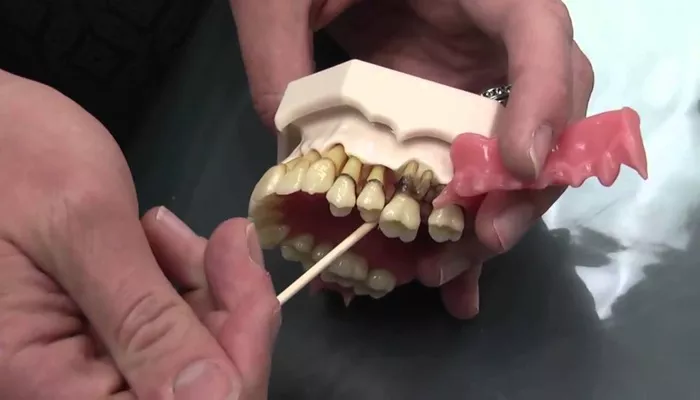Periodontitis is a severe gum infection that damages the soft tissue and destroys the bone that supports your teeth. It is commonly a result of poor oral hygiene and can lead to tooth loss if not properly managed. This condition progresses from gingivitis, a milder form of gum disease, and is characterized by symptoms such as swollen gums, bleeding when brushing, persistent bad breath, and gum recession.
The management of periodontitis is multifaceted and typically includes both non-surgical and surgical treatments.
Medications play a crucial role in the treatment regimen, and selecting the best medicine can significantly impact the effectiveness of the overall treatment plan. This article will delve into the types of medications used for periodontitis, their efficacy, and how they fit into a comprehensive treatment strategy.
Types of Medications for Periodontitis
Antibiotics
Antibiotics are commonly used to control bacterial infection and inflammation in periodontitis. They can be administered either topically or systemically.
Topical Antibiotics: These are applied directly to the gum line and can be effective in delivering high concentrations of the drug to the affected area. Common topical antibiotics include:
Chlorhexidine Gluconate: Chlorhexidine is a broad-spectrum antimicrobial agent that can reduce plaque and gingivitis. It is often used in the form of mouthwashes or gels and is effective in controlling bacterial growth in localized areas.
Doxycycline Hyclate: This antibiotic, often used in a controlled-release form, helps in reducing inflammation and bacterial load in the periodontal pockets.
Systemic Antibiotics: These are taken orally or intravenously and work throughout the body. They are used in cases of severe periodontitis or when localized treatments are insufficient. Common systemic antibiotics include:
Amoxicillin: A widely used antibiotic for its effectiveness against a broad range of bacteria.
Metronidazole: This antibiotic is particularly effective against anaerobic bacteria that are often involved in periodontitis.
Tetracyclines: These include drugs like doxycycline and minocycline, which not only help combat bacterial infections but also possess anti-inflammatory properties.
SEE ALSO: Where Is Periodontal Disease Found?
Anti-Inflammatory Medications
Anti-inflammatory medications help reduce gum inflammation and are crucial for managing periodontitis. These include:
Non-Steroidal Anti-Inflammatory Drugs (NSAIDs): Over-the-counter NSAIDs such as ibuprofen and naproxen can help reduce pain and inflammation. Prescription-strength NSAIDs may be recommended for more severe cases.
Corticosteroids: For more severe inflammation, corticosteroids like prednisone may be prescribed. They are effective in reducing inflammation but are generally used with caution due to potential side effects.
Medications to Promote Tissue Regeneration
Some medications and products are designed to aid in the regeneration of damaged tissue. These treatments include:
Bone Grafts and Growth Factors: While not medications per se, these are often used in conjunction with drugs to aid in bone and tissue regeneration. Bone grafts can provide a scaffold for new bone growth, and growth factors can stimulate tissue repair.
Enamel Matrix Derivatives: These are proteins that can help in the regeneration of periodontal tissue by promoting the growth of new tissue.
Selecting The Best Medication for Periodontitis
Choosing the best medication for periodontitis depends on various factors, including the severity of the disease, the specific bacteria involved, and the patient’s overall health. Here are some key considerations:
Severity of the Disease:
Mild to Moderate Periodontitis: Topical antibiotics and NSAIDs may be sufficient for managing mild to moderate periodontitis. Chlorhexidine mouthwash and doxycycline can be effective in controlling localized infection and inflammation.
Severe Periodontitis: Systemic antibiotics are often required for more severe cases. In addition to antibiotics, other interventions such as bone grafts or enamel matrix derivatives may be necessary.
Bacterial Resistance:
Antibiotic Resistance: It’s important to consider the potential for antibiotic resistance. A thorough examination and possibly a bacterial culture can help in selecting the most effective antibiotic and avoiding those to which the bacteria might be resistant.
Patient’s Overall Health:
Systemic Health Conditions: For patients with other health conditions, such as diabetes or immune disorders, treatment plans may need to be adjusted to account for potential interactions and complications.
Patient Compliance:
Ease of Use: Topical treatments might be preferable for patients who have difficulty adhering to a daily oral regimen. Systemic antibiotics might be more suitable for patients who can follow a prescribed course of medication.
Combination Therapy
In many cases, a combination of medications is used to address different aspects of periodontitis. For instance, antibiotics might be used in conjunction with anti-inflammatory drugs to manage both the infection and the associated inflammation.
The use of combination therapy can be tailored to individual patient needs and the specifics of their condition.
Integrating Medication with Non-Pharmacological Treatments
Medication alone is not sufficient for managing periodontitis. It must be integrated with other treatments such as:
Scaling and Root Planing: This deep cleaning procedure removes plaque and tartar from below the gum line and helps to reduce the bacterial load.
Surgical Interventions: In cases where non-surgical treatments are inadequate, surgical procedures may be necessary to access and clean deeper periodontal pockets.
Oral Hygiene Practices: Patients must adhere to rigorous oral hygiene practices, including regular brushing, flossing, and professional dental cleanings.
Lifestyle Modifications: Smoking cessation and management of systemic conditions like diabetes are crucial for improving treatment outcomes.
Conclusion
The best medication for periodontitis depends on the severity of the disease, the specific bacteria involved, and the overall health of the patient. A combination of antibiotics, anti-inflammatory medications, and tissue regeneration products, along with non-pharmacological treatments, provides a comprehensive approach to managing this condition. By integrating medication with thorough dental care and lifestyle changes, patients can effectively manage periodontitis and maintain their oral health.

